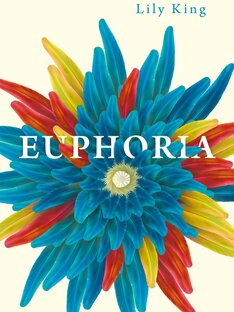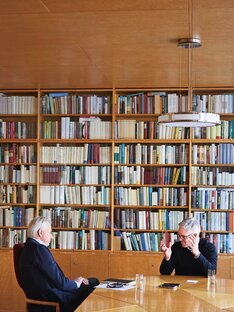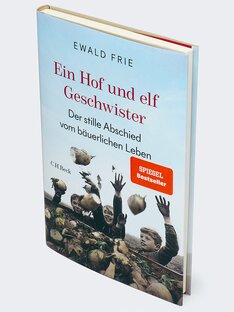Jonathan Beck
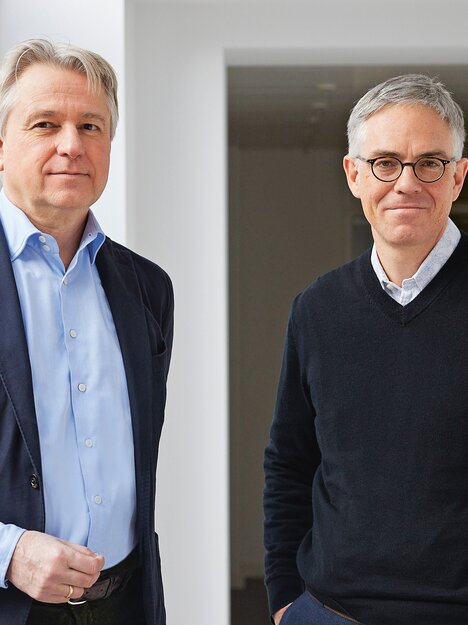
Jonathan Beck (JBe): Welcome to our offices on Ainmillerstraße. By the way, there is an entire book dedicated to this street. Thomas Mann lived on this street and wrote his novella "Gladius Dei" here at the beginning of the twentieth century.
Juergen Boos (JBo): A very appropriate setting then. With "German Stories", we want to introduce the global publishing audience to iconic German publishers. One of the most important of these being C.H.Beck, not least because of the great tradition of your family business. How did it all begin?
JBe: The founder of this house, Carl Gottlob Beck, was an immigrant from Saxony who moved to the Free Imperial City of Nördlingen and took over a printing house in 1763. He then not only printed for clients, but also began to publish books on his own. One crucial factor for him was that the censor in Nördlingen was much less invasive than in other cities.
JBo: This is not unlike the origin story of the Frankfurter Buchmesse, which began in Mainz. Mainz was the seat of a bishopric and was subject to heavy censorship, so the Buchmesse moved to the Free Imperial City of Frankfurt, far away from the pope, and along a trade route stretching from Lyon to Leipzig. It was a place in which the book trade could flourish.
JBe: Nördlingen worked well for us, too. Over time, the publishing house began to specialise in academic topics. At some point, nearby Munich became a more attractive location due to its university. But we still maintain our printing house in Nördlingen, with 350 employees. Nördlingen also remains an important IT location for us, and much of the work for the Beck online database of our legal publishing division is done there.
English-language literature has played an important role for us
JBo: As a reader, I am familiar with C.H.Beck’s literary list through two authors in particular: Paula Fox and Andre Dubus. How did you manage to develop such a significant list over time?
JBe: It’s perhaps not a coincidence that you’ve named two American authors. English-language literature has played an important role for us, with authors like Anthony Doerr, Lily King, Daniel Mason, and Liz Moore. This has remained an essential aspect of our profile, alongside our parallel focus on German-language literature, with authors such as Jonas Lüscher, Norbert Scheuer, Hans Pleschinski, and Sabine Gruber. But these are not the first literary authors for C.H.Beck. Our house classic is Heimito von Doderer, whose bestselling novel "Die Strudlhofstiege" ("The Strudlhof Steps"), published in 1952, was translated into English not too long ago [laughs] for the first time.
JBo: To me, your lists are a byword for quality. I do wonder, however, whether readers are aware of this. Is the publisher an important brand name in its own right? We have Suhrkamp, Hanser, and C.H.Beck – a triumvirate of quality publishers.
JBo: How do you find and attract excellent talent to your house?
JBe: We are, and to my mind always have been, a publishing house driven by a programme. There are other houses that, justifiably, are more sales-driven. But in our house, the editors walk through the hallways with their heads held a little bit higher than the colleagues in other divisions. They have a corresponding desire for quality works. Recruiting has become a problem in general for publishers today. Fortunately, that’s not yet the case for our editorial staff.
JBo: It’s noteworthy that your employees tend to stay with you for a long time. I’m thinking of important personalities, such as Martin Hielscher in literature, or the quasi-legendary Detlef Felken. They have put their personal stamp on the programme for over twenty years.
JBe: This has to do with our work environment and our high level of respect for our employees, but it should be typical for family businesses in every sector. In a business such as ours, it goes without saying that family members may not be especially qualified for a job simply because of their background, regardless of whether they work as publishers or in other areas of the business. We know how important it is to have good employees on all levels, to value them, and to give them the space to grow and develop. There is a nice anecdote to this effect dating from the time of my grandfather, Heinrich Beck. In his era, the editor Horst Wiemer made Heimito von Doderer famous. And at the Frankfurter Buchmesse, it was Wiemer who spent the night in the Hessischer Hof, not my grandfather. It was the editor who needed the lobby of the Hessischer Hof more to do his job than his publisher.
Our slogan for the whole house is ‘The World in a Book’
JBo: Brain research looks at ‘the world in our heads.’ I think ‘The World in a Book’ suits Beck beautifully.
JBe: Thank you. We recently acquired the Unionsverlag to join our publishing group. Its founding publisher, Lucien Leitess, has since 1975 pursued an agenda that we would describe today as ‘postcolonial’. His approach also fits nicely with ‘The World in a Book’.
JBo: The Unionsverlag was always an important partner for the LitProm society, which champions and promotes literature from the Global South.
JBe: The Unionsverlag fills a gap for us, since C.H.Beck has so far largely been oriented towards the western world, perhaps because of our strong ties to academia. We tend to focus on expert voices from communities we know. At Unionsverlag, in contrast, what matters is the original voice from a particular region.
We want to empower debates and be pluralistic wherever possible
JBo: We’ve come back to our initial topic: strengthening democracy through the mediation of knowledge and ways of thinking.
JBe: This year, I believe that the role of our sector in promoting democratic processes will be a topic of international importance.
JBo: I’d like to turn to the topic of debates. On the one hand, Germany enjoys a healthy debate culture on a broad spectrum of topics; on the other, arguments often devolve into ad hominem, hurtful attacks. What does it mean, in this turbulent time, to publish sophisticated books that provoke debate?
JBe: Books remain an excellent vehicle for debate culture: they construct positions and put forward arguments. We want to empower debates and be pluralistic wherever possible. We also try to facilitate debates within our house and represent multiple positions on controversial topics – if not in one book, then in two or three. Our ‘landmark’ German historians, for example, have for a long time included the more conservatively inclined Thomas Nipperdey as well as Hans-Ulrich Wehler, who is closer to the Social Democrats.
JBo: To me, the art of publishing seems to lie in the ability to address current events and simultaneously recognise their universal relevance – in other words, to publish books that won’t be forgotten in two years’ time.
JBe: That is, of course, our hope and our goal. Books should never aim to replace newspapers. They enjoy a higher degree of freedom and reflectiveness. It would be a waste of the work we put into each book if they were to disappear too quickly. This is why we avoid chasing trends. But some debates persist: Germany has been having a debate on immigration for thirty years now, and as such we naturally want to publish books on it. Books that endure.
JBo: Mr Beck, thank you very much for the conversation.
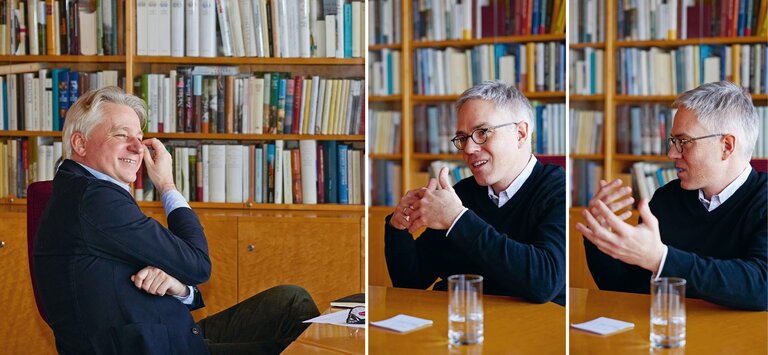
About
News about the books, the authors and the publisher can be found on chbeck.de or on facebook.com/CHBeckLiteratur or on instagram.com/c.h.beckliteratur
Dr. Jonathan Beck, born in Munich in 1977, studied Economics in Berlin, Toulouse and Mannheim. In 2008 he started work at C.H.Beck where, amongst other assignments, he was editorial director for Economics and Business in the company’s professional publishing division. Since February 2015 he has been the publisher for the trade division, following his father Dr. h.c. Wolfgang Beck as the seventh publisher there since 1763. Since 2023, when the Zurich-based Unionsverlag joined the C.H.Beck group of publishers, Jonathan Beck has served as President of its Board of Directors.

